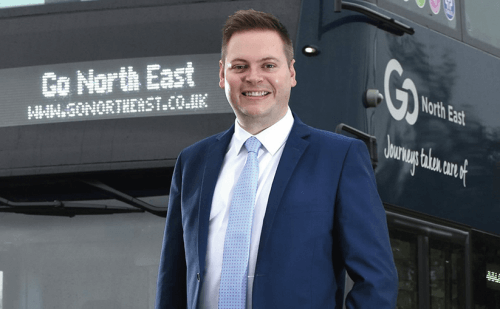
Following months of talk about funding and service changes, and fears over passenger numbers and changing travel habits, Managing Director of Go North East, and Chair of operators’ association NEbus, Martijn Gilbert offers his thoughts on the current issues in the bus industry and its long-term future
The North East’s bus network is on the cusp of a transport revolution and plays a critical role in the climate change agenda. Buses reduce congestion on our roads, they connect our communities and boost our economy. The industry is a major employer too, providing jobs for 6,000 people in the North East alone. Over the past few years, passengers have benefited from huge investment – in low emission vehicles, luxury buses for express routes and smartphone apps with live tracking that tell you when your bus is due.
Buying a ticket has become easier thanks to smart card and contactless payments, and improvements to multi-operator tickets, including the Network One ticket across bus, metro and ferry – which only last year was extended to cover journeys to and from County Durham and Northumberland. And season tickets are now available on the Pop smartcard.
The pandemic has brought bus operators and local authorities closer together, jointly navigating their way through the challenges posed by Covid-19. Under the Government’s National Bus Strategy, that spirit of co-operation is being formalised with an ‘Enhanced Partnership’ agreement. These agreements allow regions to bid for a pot of Government money available for so-called Bus Service Improvement Plans. The North East has asked for £804m to introduce more bus priority, which would speed up journeys, generating more passengers and funding further improvements to bus fares and ticketing.
[…]
By subscribing you will benefit from:
- Operator & Supplier Profiles
- Face-to-Face Interviews
- Lastest News
- Test Drives and Reviews
- Legal Updates
- Route Focus
- Industry Insider Opinions
- Passenger Perspective
- Vehicle Launches
- and much more!


